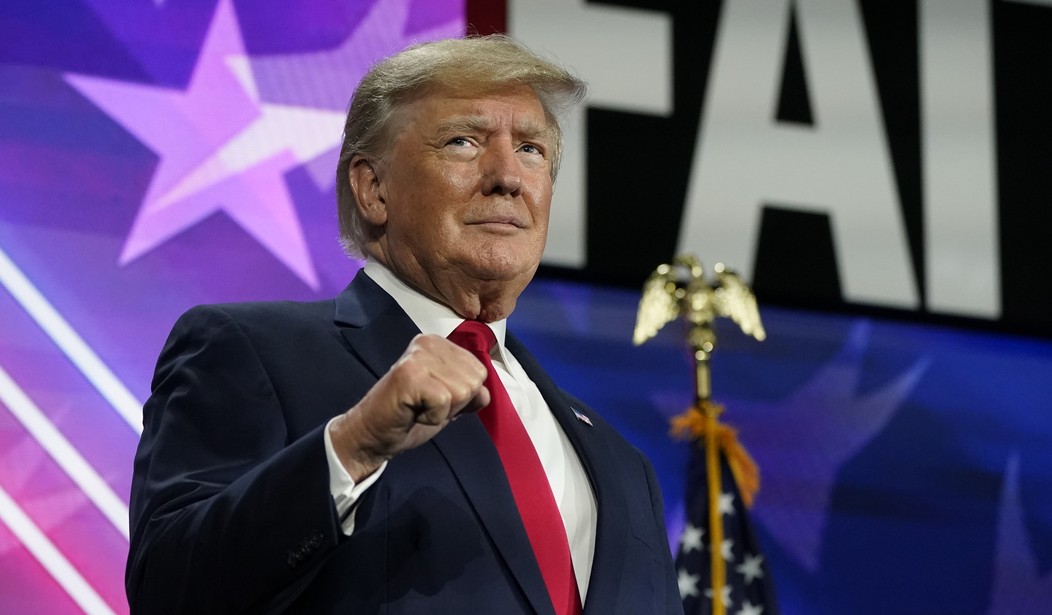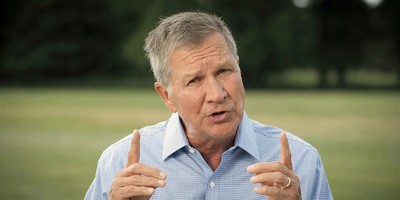In previous articles, I have shared how Trump’s ascendancy and victory caused me, among many conservatives, to change our minds on some issues. Certainly, Trump taught me that conservative candidates with otherwise liberal pasts could do the best for the country once in office. Trump exceeded expectations on many fronts—and still does.
On policy issues, Trump caused me to rethink the Free Trade v. Protectionism debate. Ever since I was enthralled with free enterprise and economic libertarian thinkers like Ludwig von Mises, Friedrich Hayek, and Milton Friedman, I was committed to the “Free Trade” camp. Limit all regulations, let countries trade without any barriers or hindrances from government, and everything will balance itself out. I also believed that trade deficits don’t matter, and that unfettered immigration is acceptable, provided that it was immigration to work, not to welfare.
I was in the full-force free-trade camp. So was paleoconservative (and consummately vindicated) protectionist pundit Pat Buchanan. In an interview with Al Jazeera TV, Buchanan acknowledged: “Free trade is great in theory, but we cannot expect the American worker to compete with a worker in Malaysia, Singapore, or Mexico, who gets paid two dollars an hour.”
I would also submit that American factories cannot compete with factories in Third-World countries where workers enjoy no natural rights, are routinely treated like chattel, serfs, or worse yet slaves. Such abuses create an unfair advantage, because those countries don’t play by the same rules as the United States. American trucks cannot compete with Mexican trucks, which do not comply with our government’s onerous environmental laws, either.
Recommended
Free trade has to be fair trade. Everyone has to play by the rules, or one side undermines the other. Well-known libertarian reporter and columnist John Stossel argues that trade between countries is like commerce between a customer and a grocery store. That’s a naïve comparison. Individuals and private businesses are not responsible for securing a border or establishing clear-cut weights, measures, and other standards. Governments have a role in these aspects of trade, and let’s not forget that some countries want to destroy other countries!
It’s stunning how these free-trade libertarians ignore other problems related to their cult-like adherence to this foreign economic policy position, even with the above concerns considered. Stossel recently interviewed Senegalese entrepreneur Magatte Wade. Consider this part of their exchange, in which Magatte and African business owner rallies against the foreign aid and free goods donated to sub-Saharan countries like Tom’s Shoes, which donated 93 million pairs of shoes: “Did you know we have 232 shoe-making businesses, each one of them hiring directly at least 15 people? When shoes are being put into a container and shipped to my village, the shoemaker now has to close his doors, because who can compete against free?”
Exactly. This situation would have been Stossel’s great segue to explain why countries set up tariffs against goods sold or dumped on the cheap from other countries. China wants to dump cheap steel into the United States markets, undermining our homegrown industries. They capture the whole iron-smelting market, and then cripple the United States to be fully dependent on them.
After two years of COVID-19 lockdowns, shutdowns, and mandates—and supply-chain issues--we all learned the dangers of allowing essential American industries to get poached by foreign countries, including adversaries who seek our destruction. There is no wisdom in allowing medical supplies, war materiel, etc. to be manufactured solely by China or Russia. Energy and manufacturing independence are a must for our country, and government policy to ensure national security and sovereignty is essential.
Trump reminded the voters, and the political class, that a country is more than an economy, and a country’s economy cannot survive, let alone thrive without a strong cultural and political structure respecting the rule of law, a common commitment to national character and identity, plus a firm regard for the needs of the citizenry first and foremost. America First cannot happen if the political class worships GDP but ignores GOD.
So, how did the free market advocates get it wrong?
In his seminal work Capitalism and Freedom, Milton Friedman urged countries to lower their trade barriers, even if other countries raised theirs. In his extensive public television documentary Free to Choose, he argued that countries which subsidize certain industries and impose tariffs on goods will face voter backlash and get thrown out of office.
There is one major problem with Friedman’s political calculation: most countries are not democratic, and the people have no say in the economy or international policies of their governments. Mainland China can impose tariffs, manipulate its currency, engage in predatory intellectual property piracy, and double-down on onerous regulations without fearing a popular backlash. If the people don’t like it, they rot in concentration camps with the Uighurs and the COVID- afflicted.
To put it bluntly, Friedman was a little naïve regarding the power of free enterprise to transform dictatorships into democracies.
At least Reason Magazine editor revealed Friedman’s one mistake on this matter: “Did Friedman make any mistakes in Free to Choose? His celebration of the free market miracle in Hong Kong is poignant to watch at the moment that that city’s freedoms are under siege, and before his death, Friedman came to question his famous axiom that economic freedom in autocracies such as China would inevitably give rise to political and cultural freedom.
Milton Friedman admitted to a supporter: “I made a mistake. I was wrong. You have to have the fourth element. You have to have the rule of law. You have to have a law that applies equally to everyone. And clearly that’s what you see not happening in China.”
In other words, a country is more than an economy.
Free trade needs to be fair, i.e. both sides play by the same rules, i.e. the rule of law. When one country is tipping its hand, it’s appropriate for the other country to take protectionist measures to safeguard the home industries, secure workers, and ensure a proper balance.

























Join the conversation as a VIP Member